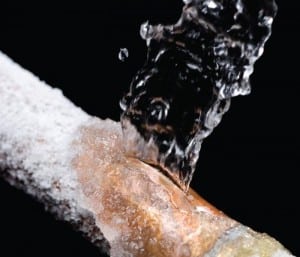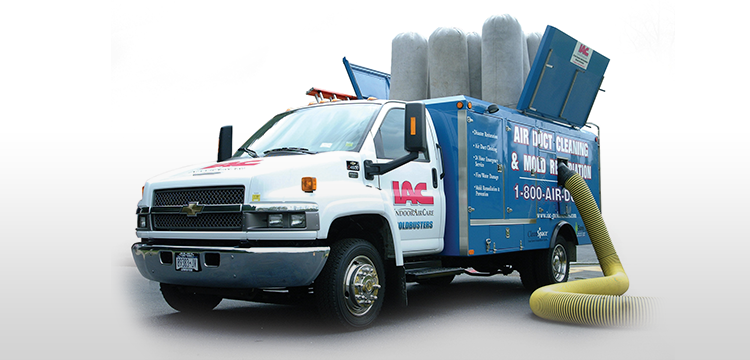
When a pipe freezes and bursts is can cause some serious water damage. Burst pipes happen when cold water coming in to the house from outside causes your pipes to contract and this contraction often causes leaks from areas of the pipe that had weakened over time.
While you can’t control the weather, keeping an eye on your plumbing system as the temperatures change and checking to see if you have any leaks can help mitigate any looming disaster.
Keep the Water Running
Water moving through the system helps keep your lines from freezing. If it is extremely cold outside, keep one or two faucets running slowly at all times.
Know Where Your Drafts Come From
Where your house is drafty is where most pipes freeze. Usually pipes that freeze are located near an outside wall or a window, so be sure to direct warm air to any colder areas of your home.
Open Your Cabinets
If your kitchen sink is on an outside wall leave your cabinet doors open to allow heat into the cabinet. Your kitchen faucet is usually a good faucet to leave when the temperatures drop.
Disconnect your Hoses
You should disconnect your hoses in the winter, but you should definitely disconnect them when the temperature drops below freezing. When water is not able to drain out of your hose bib it will likely freeze and break the device and can cause serious water damage.
Keep the Cold Air Out
The cold can get through small cracks, make sure your home is properly insulated and sealed. Even the tiniest cracks can let cold air in and freeze your pipes. Use caulk or insulation to keep the cold out Look for air leaks around electrical wiring, dryer vents, and pipes.

